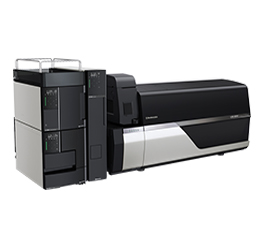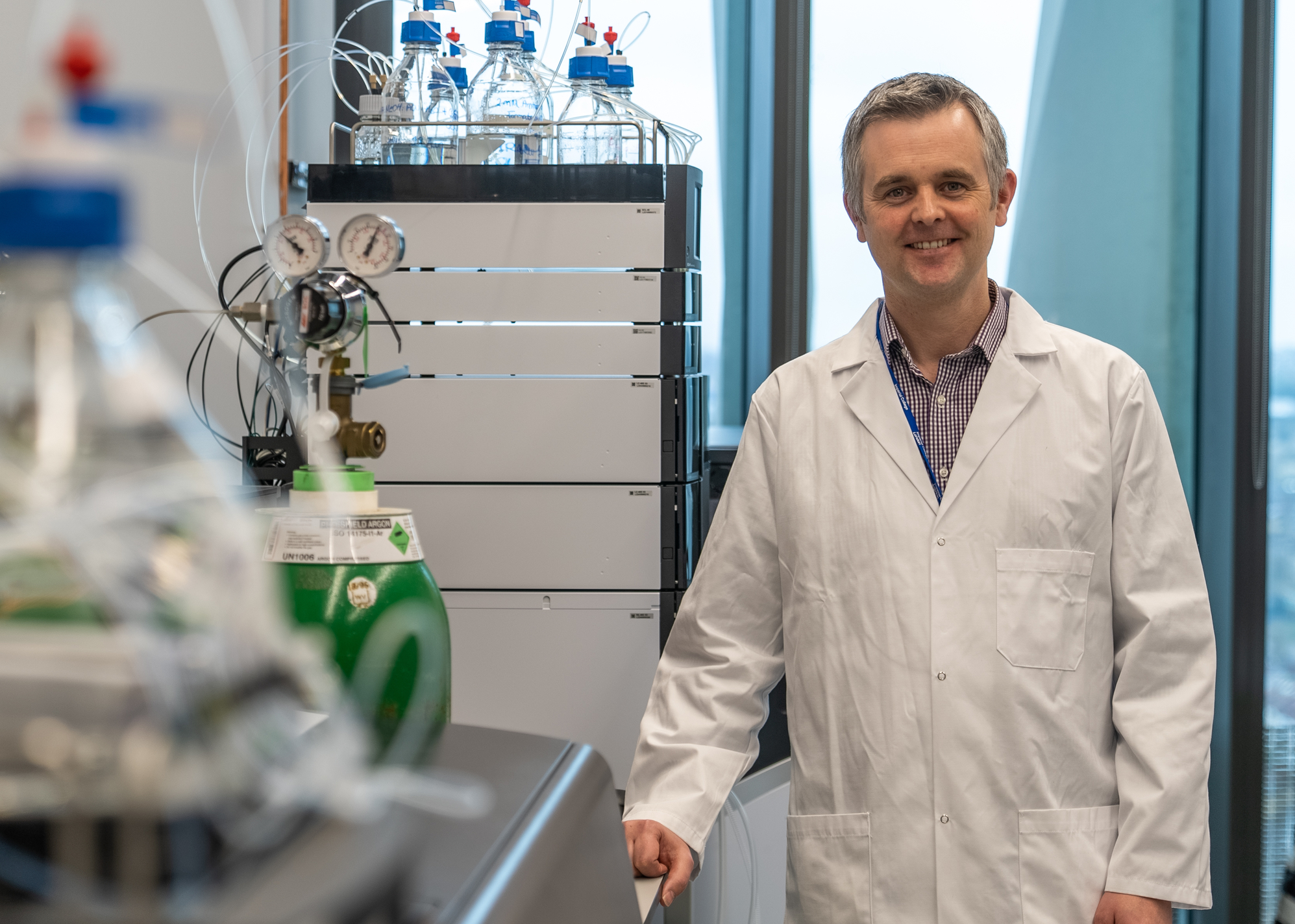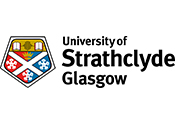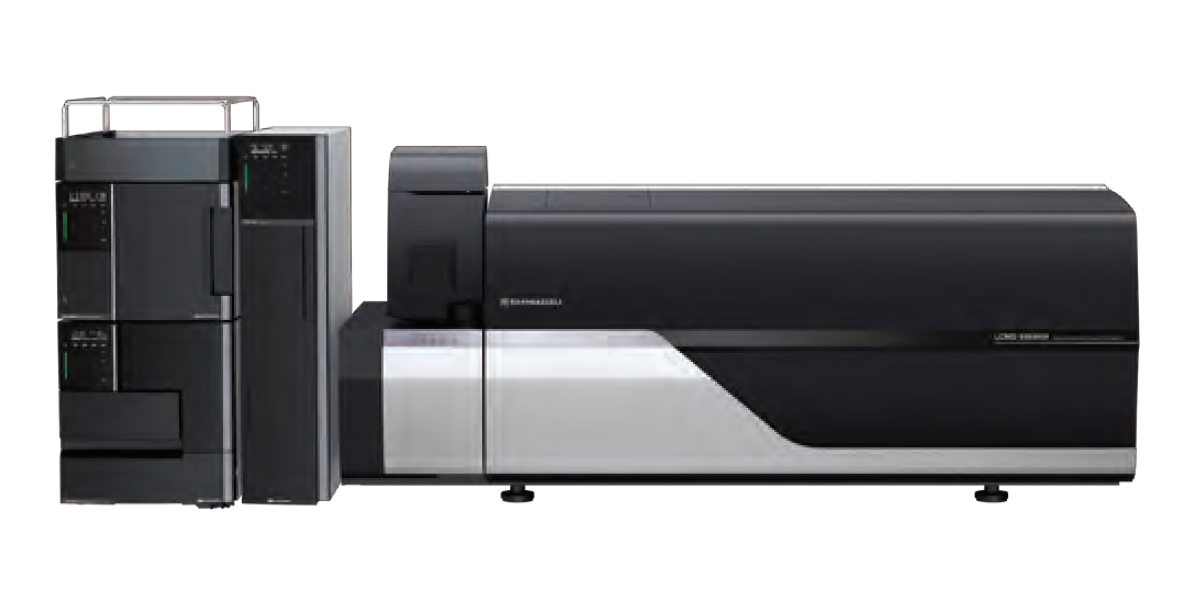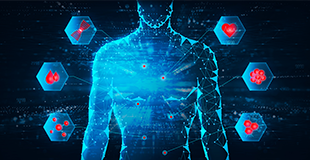University of Strathclyde: Unravelling the Mysteries of Gastrointestinal Disease
An Interview with Patricia Kelly
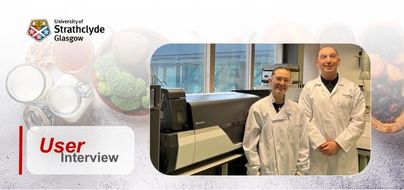
University of Strathclyde
-
INDUSTRY
Life Science - Metabolomics
-
KEYWORD
Gastrointestinal Disease, Inflammatory Bowel Disease, Diet
-
INTRODUCTION SERVICE&PRODUCTS
LCMS-8060NX
In the world of scientific inquiry, the pursuit of understanding the intricate mechanisms underlying diseases and their relationship with human biology is a ceaseless endeavour. Patricia Kelly, a second-year PhD student at the University of Strathclyde, is at the forefront of this exploration. With a background in Immunology and Biochemistry, followed by an MSc in Precision Medicine and Pharmacological Innovation, Patricia is passionately engaged in investigating the metabolic signatures of gastrointestinal inflammation and the impact of diet on disease. We had the privilege of sitting down with Patricia to discuss her ground-breaking work and the crucial role played by her collaboration with Shimadzu UK.
Could you provide an introduction and summary of your background/current field of research?
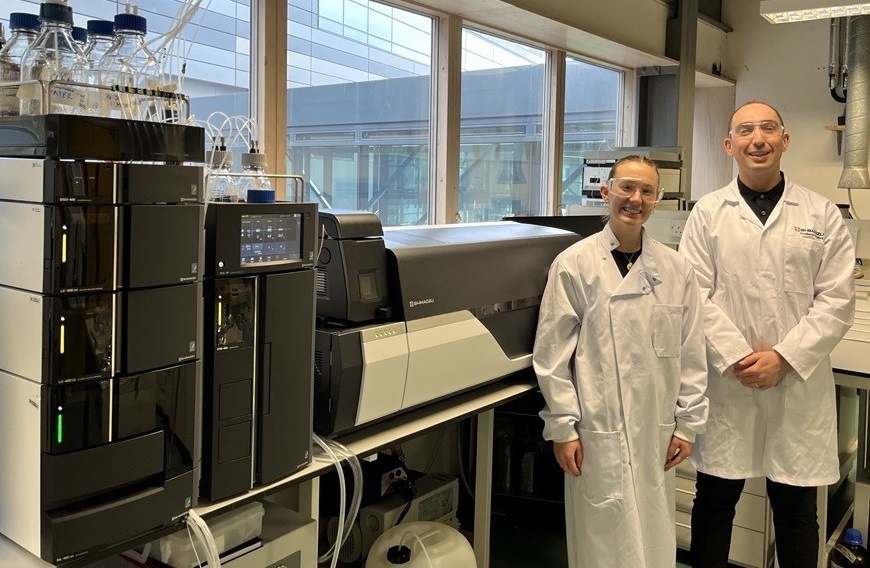
captionText
Patricia: Of course! I'm currently a PhD student under the guidance of Dr. Nicholas Rattray at the University of Strathclyde and Professor Konstantinos Gerasimidis at the University of Glasgow. My research is centred on unravelling the mysteries of gastrointestinal inflammation and its complex interplay with diet. My academic journey, marked by a BSc in Immunology and Biochemistry and an MSc in Precision Medicine and Pharmacological Innovation, fuelled my interest in autoimmune diseases like inflammatory bowel disease (IBD). The role of diet in disease onset and management further intensified my curiosity, culminating in my present research endeavour. Through the application of metabolomics, I'm investigating the metabolic underpinnings of gastrointestinal diseases, employing analytical techniques like mass spectrometry and data analysis to construct a comprehensive understanding of these conditions. My work spans the entire metabolomics pipeline, from sample preparation and metabolite extraction to intricate data analysis and modelling. Ultimately, I aspire to enhance the role of metabolomics in advancing our knowledge of the gut and its intricate relationship with diet.
How has the collaboration with Shimadzu UK benefited you with this?
Patricia: The collaboration with Shimadzu UK has been an invaluable asset throughout my PhD journey. Their guidance and training have been pivotal in enabling me to harness a variety of methodologies, enhancing their application in biomedical research. Particularly, I've had the privilege of working extensively with Shimadzu's triple quadrupole LCMS-8060NX. This cutting-edge instrument has empowered me to perform targeted analyses of specific metabolites in patient samples afflicted with Crohn’s disease and Coeliac disease. The sensitivity of this technology, allowing analysis of minute traces in complex biological matrices, has yielded high-quality quantitative data, granting profound insights into the metabolic intricacies of gastrointestinal disease. The user-friendly software associated with the instrument has further facilitated my research and method development. Beyond the technology, Shimadzu has fostered a network within the mass spectrometry and metabolomics community, amplifying my engagement and learning. Their support has truly elevated the quality and depth of my mass spectrometry research.
Have you been able to showcase this excellent work to the wider scientific community?
Patricia: Absolutely. I've been fortunate to present my research on several notable platforms. Last year, I showcased posters at the Metabolomics conference in Valencia, as well as the BMSS and SMN conferences. This year, I extended my reach, presenting my work at the Metabolomics and Human Health Gordon Research conference in Italy, and the Glasgow Life Science Symposium. These opportunities have been instrumental in fostering meaningful discussions with fellow researchers, yielding invaluable feedback that has propelled my research forward. Additionally, I achieved a significant milestone with the publication of my first research paper, detailing the optimisation of a faecal extraction method for LC-MS/MS analysis and its application in gastrointestinal disease. This achievement marked a substantial step forward in my academic journey.
What are the plans for continuing your research over the next 2/3 years?
Patricia: Over the upcoming years, I'm committed to advancing my research trajectory. My primary focus remains on metabolomics research in the realm of gastrointestinal disease, specifically investigating how diet shapes disease outcomes and unraveling the intricate mechanisms at play. I aspire to address pressing questions and explore novel techniques to dissect disease complexities. One exciting avenue I'm keen to explore is the utilization of additional Shimadzu instruments, such as the LCMS-9050 Q-TOF and LCMS-2050 single quadrupole models. These instruments offer promising opportunities for expanding applications, especially in complex biomedical research. As I complete my PhD journey, I'm driven by the desire to make a substantial positive impact on the field, leveraging metabolomics to enhance our understanding of the gut and its role in health and disease.
Patricia Kelly's journey is a testament to the power of collaboration, technology, and unrelenting passion in advancing scientific knowledge. Her innovative work at the intersection of metabolomics, gastrointestinal disease, and diet promises to shed light on previously uncharted territories, offering hope for improved disease management and enhanced well-being. As Patricia continues to make strides in her research, she embodies the spirit of discovery that drives scientific progress. We eagerly anticipate the impact her work will undoubtedly have on shaping the future of healthcare and scientific understanding.
Patricia Kelly
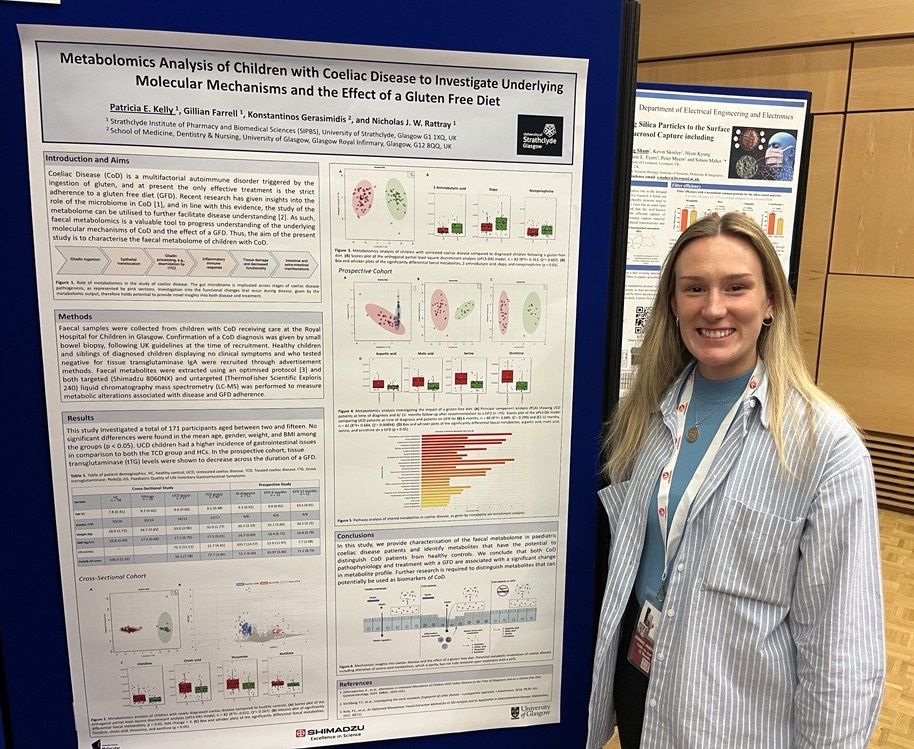
Patricia Kelly, a PhD student at the University of Strathclyde, is at the forefront of this exploration.
*Affiliates and titles of the interviewee are current as of the time of reporting.
University of Strathclyde



